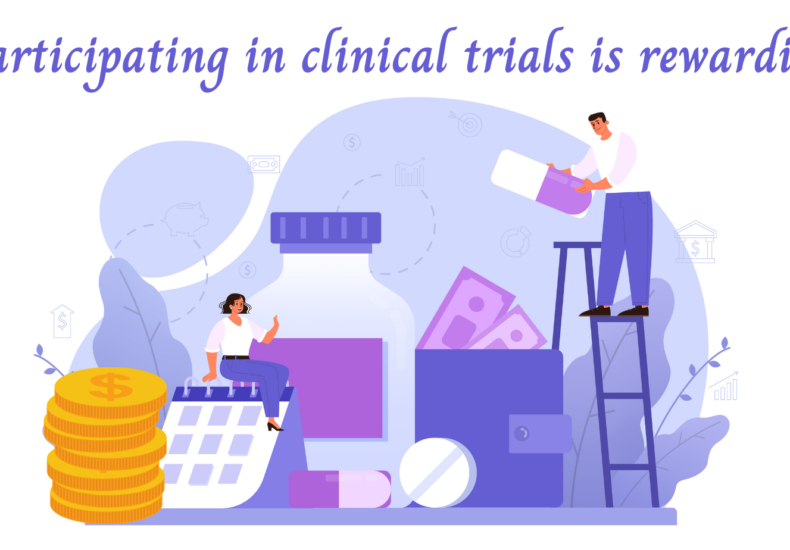
Clinical Trials are responsible for the safety and efficacy of a medication or treatment and ensures general people about its use. Though this is the era of emerging clinical trials but still most of the people are unaware of it and many misunderstand it. This hampers the impact of the clinical studies or even prevents it from happening.
There are many myths regarding clinical trials that are just myths which need to be removed and the realities about them should be made clear to general people so that they do not shy out from being into a trial. Let’s start with first myths and realities of clinical trials.
Myth #1: Generally people think they’ll be treated like a guinea pig. They think that if they join a clinical trial they will not get the respect and will be treated just as a model to test unknown medications or devices which in turn will harm them.
Reality: Clinical Trials are conducted under proper rules and regulations framed with ethical oversight from independent committees and making sure of the safety, welfare and respect of the participants. Volunteers are valued for their contribution and before starting any trials they are asked for their consent by signing a form. Participants are explained thoroughly about the trial and nothing happens against their will. In addition participants get the opportunity to learn more about their disease or condition and receive personal care from specialists. So, rather than feeling like a guinea pig, participants feel they are the most important part of the research process.
Myth #2: Clinical trials are dangerous
Reality: Clinical trials can be both risky and beneficial. They vary from study to study and from one participant to another and most of the risks are avoidable. The volunteers are explained about the specific risks associated with the study so that they have the full privilege to weigh and decide whether to continue or not with the trial.
The potential new drug or treatment is not totally untested. Before it reaches to the participants, it is tested in a lab reducing much of the risks.
Myth #3: If once joined in a trial, one cannot quit it on their own.
Reality: Participation in a trial is totally voluntary. If someone is enrolled in a study, he/she has the right to withdraw from it at any time for whatever reason it may be with zero penalty or negative impact on the clinical care given by the doctor. In case the study is no longer in a volunteer’s interest, doctors or researchers should inform them about it and withdraw them from the clinical trial.
Myth #4: Being in a clinical research is expensive and is not covered by insurance
Reality: Clinical trial volunteers have to rarely pay for the costs related to participation in a trial and the research costs are covered by the drug sponsor. Routine care costs like doctor’s visit and lab tests are covered by many health insurances.
Myth #5: Clinical trials are the last resort for cures
Reality: Clinical trials allow the access to new therapies which are not available anywhere else. It offers an option for the patients who have worn out other options. But there are also clinical trials for patients at all different stages of their diagnosis. Some trials are specifically for patients with newly diagnosed diseases while some are for patients experiencing particular symptoms and may have been diagnosed for several years.
Myth #6: People are afraid of getting placebos if they participate in Clinical trials
Reality: Not all trials use placebos. Placebos are used only in trials related to diseases which are not life threatening and with the approval of FDA and CLA. Some trials use it to measure the effectiveness of a new treatment against a placebo whereas some trials test a potential new drug against the existing standard care.
Myth #7: Clinical trials are useful in future but doesn’t help the people currently volunteering
Reality: Clinical trials process for several years and during it if the treatment isn’t effective for a patient then also it is paying it forward. Along with helping research and accessing potential treatments before they are available in the market, participants also receives quality and personalized care during the trial and also gets to learn a lot about their condition.
Myth #8: To participate in a clinical trial a person needs to live near the trial site
Reality: Not only major hospitals but also academic research facilities, regional hospitals and smaller clinics run clinical trials. Participants do not need to live near the trial site. Those who travel from distances to participate especially in rare disease clinical trials are offered compensations. And now as the COVID pandemic has resulted in the incorporation of virtual elements into the research plans, virtual clinical trials have increased that allows participants to visit the sites through an app or webcam and get blood drawn by a mobile phlebotomist.
Myth #9: Only the people who are terminally ill can participate in Clinical trials
Reality: Some clinical trials focus on terminally ill patients whereas other studies enroll healthy volunteers. The collected data from this helps the researchers to compare those who have specific condition or disease. Healthy volunteers also help the researchers to learn more about the condition.
Supporting the idea of clinical trials, taking action and getting involved in a clinical trial will not only help healthcare system to move faster to find better treatments but also will build a healthier environment for the present and future world.
We hope you like our blog “Myths and Realities of Clinical Trials” to read more blogs on related topics click here. To get the latest updates and news make sure to follow and subscribe to us on Youtube, Instagram, and Facebook




